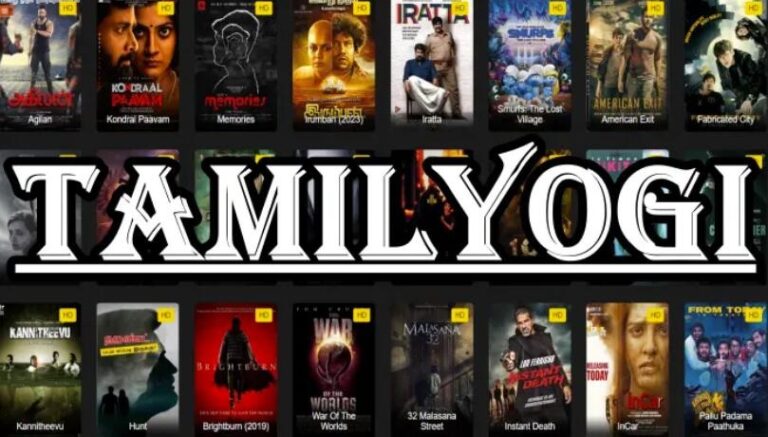
pm vishwakarma
The PM Vishwakarma Scheme is an initiative launched by the Indian government, specifically tailored to uplift and support traditional artisans and craftspersons across the country. This scheme seeks to empower these skilled individuals by providing them with the necessary financial aid, training, and resources to enhance their livelihoods. Launched under the leadership of Prime Minister Narendra Modi, the PM Vishwakarma Yojana aims to preserve and promote traditional craftsmanship while integrating modern technologies.
Table of Contents
Overview of the PM Vishwakarma Scheme: PM Vishwakarma Yojana
The PM Vishwakarma Scheme is named after Lord Vishwakarma, the Hindu deity of craftsmanship and architecture, which symbolizes the scheme’s focus on enhancing traditional skills. This initiative is directed towards artisans and craftspersons from economically weaker sections of society, helping them to advance their trade and craftsmanship in today’s competitive market.
Objectives of the Scheme
- Supporting Traditional Artisans
The scheme’s primary objective is to provide financial support, skill development, and technological integration to traditional artisans, making them economically independent and competitive. - Skill Development and Training
It aims to provide training and skill enhancement programs, enabling artisans to adopt modern techniques and improve productivity. - Financial Inclusion
One of the scheme’s core goals is to include these artisans in the formal financial system by offering affordable loans, subsidies, and grants to reduce their economic vulnerability. - Market Linkages
By helping artisans connect with larger markets, both domestically and internationally, the scheme hopes to boost demand for traditional crafts and increase artisans’ income.
Eligibility Criteria for PM Vishwakarma Yojana
To ensure that the PM Vishwakarma Scheme benefits those in genuine need, there are specific eligibility requirements:
Key Eligibility Points
- Artisan Background
Only individuals involved in traditional craftsmanship and skills, such as blacksmithing, carpentry, pottery, weaving, and similar trades, are eligible. - Economic Status
The scheme is primarily aimed at artisans from economically weaker sections, allowing those with limited financial resources to access necessary support. - Age Limit
Beneficiaries must typically be between 18 and 50 years of age. - Certification and Verification
A proper verification process is in place to ensure that beneficiaries are genuinely involved in traditional crafts. Certification from local authorities or trade unions may be required to qualify.
Benefits Offered Under the PM Vishwakarma Scheme
The PM Vishwakarma Scheme provides a holistic support system to artisans, focusing on skill development, financial assistance, and market access. Some of the benefits include:
Skill Development and Capacity Building
Artisans and craftspersons often possess extraordinary skills but may lack access to modern techniques and tools. The scheme offers training programs focused on skill enhancement, allowing artisans to combine traditional craftsmanship with modern innovations, improving efficiency and product quality.
Financial Support and Subsidies
One of the major obstacles for artisans has been limited access to affordable financing options. The PM Vishwakarma Scheme provides the following financial benefits:
- Low-Interest Loans
Artisans can avail of low-interest loans to purchase raw materials, tools, and equipment necessary for their craft. - Subsidies on Tools and Raw Materials
The scheme provides subsidies to artisans, reducing the cost burden of purchasing essential materials and tools. - Direct Financial Aid
To encourage continued engagement in traditional crafts, artisans may receive direct financial aid as a form of income support during challenging times.
Insurance and Social Security
Many artisans lack social security coverage, making them vulnerable in cases of illness or accidents. The PM Vishwakarma Scheme aims to provide basic insurance and social security benefits to artisans, ensuring they have protection against financial hardships due to unforeseen circumstances.
Marketing Support and E-Commerce Integration
In today’s digital era, reaching a wider audience is crucial for any trade. The scheme also focuses on e-commerce integration and digital marketing training to enable artisans to showcase and sell their products online, increasing their reach and profitability.
The Role of Technology in the PM Vishwakarma Scheme
Incorporating modern technology is a crucial component of the PM Vishwakarma Scheme. The initiative promotes the use of technology to increase efficiency, reduce labor costs, and enhance the final product’s quality. The government facilitates digital tools and software training for artisans to help them adopt modern methods without compromising traditional skills.
Technology-Based Training Programs
- Digital Literacy Programs
Artisans are trained in using digital tools, online marketing, and managing finances through digital means. - Computer-Aided Design (CAD) for Craftwork
CAD training enables artisans to design intricate patterns digitally, allowing for greater accuracy and variety in their creations. - Online Platforms for Selling
Artisans are trained to use e-commerce platforms like Amazon and Flipkart, specifically sections focused on handmade and craft goods. - Access to Digital Payment Methods
With digital payments becoming increasingly popular, artisans are trained to receive and manage payments online, facilitating smoother transactions with customers.
The Importance of Market Linkages
The PM Vishwakarma Scheme recognizes the importance of connecting artisans with larger markets to ensure the sustainability of traditional crafts. The government collaborates with various industry bodies, trade unions, and e-commerce platforms to help artisans access both domestic and international markets.
Domestic and International Exhibitions
- Craft Exhibitions and Trade Fairs
The scheme facilitates artisans’ participation in local and international exhibitions, giving them a platform to showcase their products. - Export Opportunities
By linking artisans with export agencies and providing necessary certifications, the scheme opens avenues for global exposure and demand.
Digital Marketplaces
Through the scheme, artisans are encouraged to list their products on digital marketplaces, providing them with a larger customer base and greater visibility for their traditional products. These platforms allow artisans to build a brand identity and reach niche markets interested in authentic, handmade goods.
Success Stories of the PM Vishwakarma Scheme
Since its inception, the PM Vishwakarma Scheme has transformed the lives of thousands of artisans across India. These success stories highlight the scheme’s potential to empower artisans, preserve cultural heritage, and improve economic conditions.
Case Study: Empowering Potters in Rajasthan
In Rajasthan, traditional pottery is an age-old craft, but many potters struggled to make a sustainable living due to the lack of market access and financial support. Through the PM Vishwakarma Scheme, these artisans received training in digital marketing and e-commerce. Additionally, they were provided with loans to purchase electric pottery wheels, improving productivity. As a result, these potters have seen a significant rise in income, selling their products online and in national exhibitions.
Case Study: Revitalizing Weaving in Assam
In Assam, the traditional weaving community faced challenges in competing with machine-made textiles. The PM Vishwakarma Scheme offered training in advanced weaving techniques and provided subsidies for improved looms. This support has enabled weavers to produce higher-quality fabrics, which are now marketed as luxury, handmade products both domestically and internationally.
Challenges and Future Prospects of the PM Vishwakarma Scheme
While the PM Vishwakarma Scheme has been successful in many aspects, certain challenges still exist. Some artisans may find it difficult to adopt modern technology, and reaching remote rural artisans remains a significant obstacle. The government is working on expanding outreach programs to ensure the scheme’s benefits reach all eligible artisans.
Future Expansion Plans
The government plans to introduce mobile training units and enhance collaboration with NGOs to provide on-the-ground support in remote areas. Additionally, with the rise of digital payments, efforts are being made to train artisans in using secure online payment methods, making it easier for them to manage finances.
Conclusion
The PM Vishwakarma Scheme is a progressive initiative with the potential to transform the lives of artisans and craftspersons across India. By offering financial assistance, skill development programs, and access to modern technology, the scheme empowers artisans to sustain their traditional crafts in the modern marketplace. Through market linkages and e-commerce integration, the initiative brings artisans closer to both domestic and global audiences, ultimately preserving and promoting India’s rich cultural heritage.
The scheme reflects a holistic approach to addressing the economic challenges faced by artisans, empowering them to achieve financial stability while preserving the country’s unique cultural identity. As more artisans benefit from the PM Vishwakarma Scheme, the future of traditional craftsmanship in India looks promising, resilient, and ready to thrive in the digital age.



